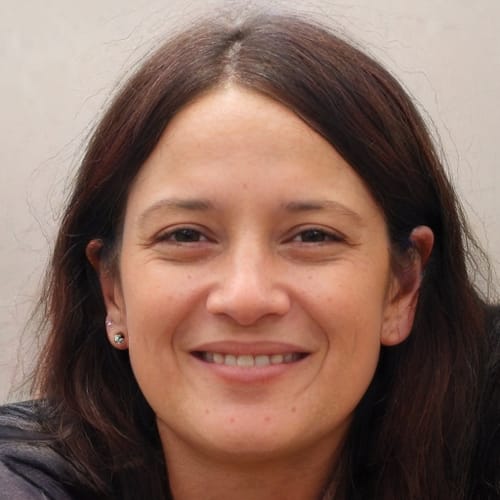Ever wondered what happens when you're the first engineer at one of the world's biggest social media platforms?
Owen Chen knows exactly what that's like. At 29, he was TikTok's very first engineer, tasked with building the initial version of what would become a global phenomenon.
But here's the twist: he quit right when TikTok hit 100 million daily active users to start his own company.
Why He Left TikTok at Its Peak
Owen joined TikTok straight out of university, working on localizing what was essentially a rebuild of the Chinese app Douyin. But the same reason he joined became the reason he left.
"I wanted the excitement of being in an early-stage business and seeing the impact of my work," Owen explains. As TikTok exploded, he found himself doing tedious work instead of innovating, watching his "growth curve flatten."
The irony? He wanted the messy, early-stage startup grind, but TikTok’s rocket ship skipped all that.
After leaving TikTok, Owen did some freelancing to pay the bills. That's when he spotted a gap in the market.
Big companies had resources to build internal portals, but startups didn't. Existing solutions like Retool were too expensive for early-stage founders.
So he built ILLA Cloud, an open-source, low-code website and app builder.
Here's where his numbers stand today:
- Monthly recurring revenue: $5,000
- Total funding raised: $3 million in angel investments
- Business bank account: $1.5 million+
- Personal savings: $200,000
- Founder salary: $4,000/month
- Monthly burn rate: $30,000
The $12 Million Valuation Story
Owen secured his first funding round in 2021, when he transitioned to working on ILLA full-time. He's raised $3 million total for 26% equity, valuing the company at roughly $12 million.
The high valuation came down to one thing: investors believed in him personally. Owen approached funds he already knew, leveraging his TikTok background and relationships.
But he admits he might have raised too early: "I think it's more effective to find investors to scale the product after it has achieved product-market fit."
Making money from open-source software is notoriously difficult, and Owen feels this pain daily. The big question: which features do you put behind a paywall?
His solution keeps the core product accessible to early-stage founders:
- Team features: $20/month per seat
- Enterprise accounts: $50/month per seat
- Individual use: Free (open source)
The upside of being open source? Many users discover ILLA through GitHub and sign up organically, reducing customer acquisition costs.
Smart Growth Hacks: Lifetime Deals and AppSumo
In the early days, Owen experimented with lifetime deals on AppSumo. While he admits he priced them too low, the strategy worked:
- Generated about $4,000 in early revenue
- Attracted loyal customers with higher tolerance for bugs
- Provided invaluable user feedback for product development
These early adopters became crucial for product-market fit validation.
It shouldn't be a surprise that Owen's biggest expense was his team. With seven people at roughly $4,000 per person per month, he's spending $28,000 monthly on salaries alone.
He's already burned through half his funding ($1.5 million), but considers it money well spent. His philosophy: build something "functionally good," not just "marketing good."
Other monthly expenses are surprisingly lean:
- Development tools: $500/month (DigitalOcean, Flyio, SendGrid, Arcade.software)
- Personal rent: $600/month
- Travel: $900/month
- Food and miscellaneous: $900/month
Owen spends nearly $900 monthly on travel, and he considers it essential for business success. His reasoning: "If you don't experience other cultures, it's impossible to create a truly global company."
Traveling across Asia and the US has given him unique insights into what users actually need in different markets.
As he puts it: "Needs are discovered, not imagined."
Investment Strategy: Values Over Returns
Despite seeing opportunities in crypto, Owen stays away after getting too greedy with altcoins in the past. Instead, he focuses on two US stocks:
- FuboTV (FUBO): "America needs its sports" plus his personal love for sports
- Solid Power (SLDP): Betting on solid-state battery technology and environmental protection
His investment philosophy is simple: put money into companies that align with your personal values.
But the math is stark: $5,000 in monthly revenue against $30,000 in monthly expenses. Owen's burning $25,000 monthly, giving him roughly 60 months of runway with his current funding.
This highlights a common startup dilemma. Owen raised significant capital early, allowing him to build a strong team and focus on product quality. But it also means he needs to scale revenue quickly or risk running out of money before achieving profitability.
Timing matters more than pedigree: Having impressive experience doesn't guarantee startup success. Market timing and customer needs trump impressive resumes.
Raise for the right reasons: Getting funding too early can create artificial pressure and unrealistic expectations. Owen's $12 million valuation became a burden rather than a blessing.
Open source needs a clear monetization strategy: Giving away the core product for free requires crystal-clear understanding of what customers will actually pay for.
Burn rate discipline is critical: $28,000 monthly on team costs might have been premature for a $5,000 MRR business. Building lean might have extended runway and improved odds.
Product-market fit comes first: No amount of funding can substitute for solving a real problem people will pay to solve.
Competition analysis matters: The low-code space was already crowded with well-funded players. Owen needed a clearer differentiation strategy.
What ILLA Got Right
Despite the shutdown, Owen's approach had merit:
Quality over marketing: Focusing on building something "functionally good" created a solid open-source foundation that still exists today.
Global perspective: His travel investment strategy and international outlook were smart for a developer tool company.
Team building: Investing in talented developers early created a strong technical foundation, even if it wasn't sustainable long-term.
Open-source community: The project attracted contributors and users, creating real value even if the business model didn't work.
ILLA's story reflects broader startup realities. Most companies fail not because the founders aren't smart or hardworking, but because:
- Market timing doesn't align with product readiness
- Funding creates pressure to scale before finding sustainable unit economics
- Competition makes customer acquisition more expensive than anticipated
- Monetization strategies don't match user behavior
- Burn rates exceed the time needed to reach profitability
Owen took big swings and built something meaningful. The open-source version of ILLA still exists, and the developer community continues to benefit from his work.
Lessons for Open-Source Founders
If you're considering the open-source SaaS route, ILLA's journey offers specific guidance:
Start with a clear paid feature strategy: Know exactly what you'll charge for before you launch, not after you need revenue.
Bootstrap longer: Consider building initial traction before raising significant funding to avoid valuation pressure.
Focus on high-value use cases: Enterprise customers who need advanced features are more likely to pay premium prices.
Plan for competition: Established players will always have advantages. Your differentiation needs to be crystal clear and defensible.
Watch the burn rate: Keep costs low until you've proven people will pay, especially for developer tools where users are naturally cost-conscious.
Owen Chen's story reminds us that startup success isn't guaranteed, even with impressive backgrounds and significant funding.
But taking the leap from employee to founder, building something meaningful, and learning from failure are all part of the entrepreneurial journey. The open-source ILLA project continues to serve developers worldwide, proving that not all startup value can be measured in revenue.



